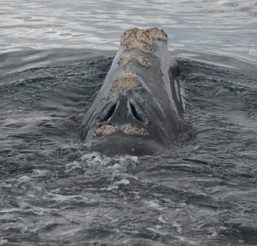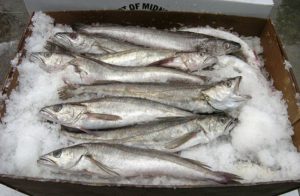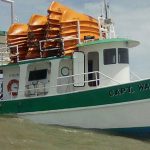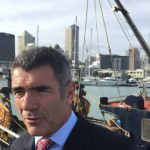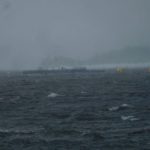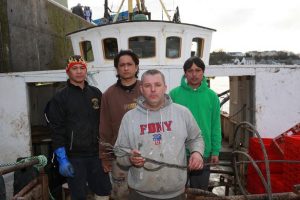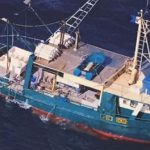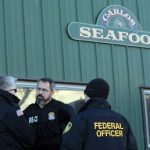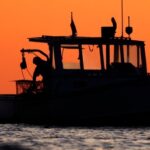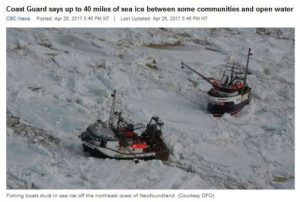Tag Archives: lobster fishery
Gear tampering becoming more frequent in Gulf region, says DFO — and that means more ghost gear
 Gear tampering in the Gulf of St. Lawrence region off P.E.I. is more common than it used to be, according to the Department of Fisheries and Oceans, and the environmental cost can be high. “Gear tampering is any action that interferes or disrupts a legal fishery,” said Matthew MacEwen, the detachment supervisor in Charlottetown for Conservation Protection with Fisheries and Oceans Canada. “Examples of this could be tampering with traps, nets or lines… causing damage to that fishing gear that renders them incapable of doing their job fishing.” MacEwen said it could include cutting the ropes off traps, making them unretrievable, or bringing traps up from the waters and destroying the webbing and mesh that keep lobsters inside once they enter the traps. Video, photos, more, >>CLICK TO READ<< 06:26
Gear tampering in the Gulf of St. Lawrence region off P.E.I. is more common than it used to be, according to the Department of Fisheries and Oceans, and the environmental cost can be high. “Gear tampering is any action that interferes or disrupts a legal fishery,” said Matthew MacEwen, the detachment supervisor in Charlottetown for Conservation Protection with Fisheries and Oceans Canada. “Examples of this could be tampering with traps, nets or lines… causing damage to that fishing gear that renders them incapable of doing their job fishing.” MacEwen said it could include cutting the ropes off traps, making them unretrievable, or bringing traps up from the waters and destroying the webbing and mesh that keep lobsters inside once they enter the traps. Video, photos, more, >>CLICK TO READ<< 06:26
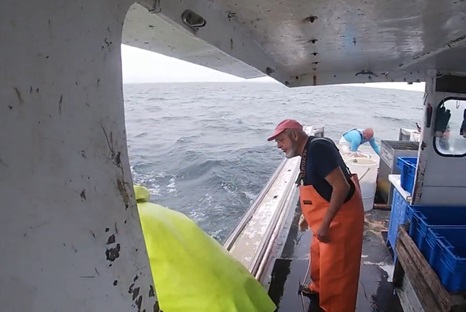
Fishermen still impacted by Long Island Sound’s lobster die-off
For decades, the crustaceans were caught off the coast of Connecticut. But, in the late 90s, things changed drastically. When the lobster die-off happened 25 years ago, it sunk many who made their living on the sea. But there are still some local lobstermen who have found a way to keep their businesses afloat. “We went from doing 500-600 pounds of lobster a tide, some guys were doing a thousand a tide, to a hundred,” said Walter Roderick, who keeps his lobster boat the Stacey Geal at Stonington Dock, the home of the last commercial fishing fleet in Connecticut. Video, more, >>CLICK TO READ<< 08:42
N.S. Liberals call for new task force to improve enforcement of lobster fishery
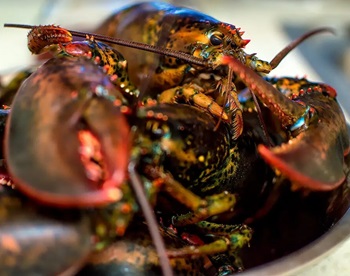 As top fishery officials from around the country arrive in PEI for the Canadian Council of Fisheries and Aquaculture Ministers meeting Nova Scotia’s Liberals are calling for a solution to the ongoing disputes over lobster fishing. Particularly in southwest Nova Scotia tensions have been running high with indigenous lobster fishermen and commercial operators. The Indigenous fishers have a right to a moderate livelihood fishery which was upheld by the Supreme Court. While commercial fishers argue that they need to still observe fishing seasons for the overall health of the lobster fishery. At times the altercations have become violent, which the Liberals say will only continue if things go unchanged. more, >>CLICK TO READ<< 07:42
As top fishery officials from around the country arrive in PEI for the Canadian Council of Fisheries and Aquaculture Ministers meeting Nova Scotia’s Liberals are calling for a solution to the ongoing disputes over lobster fishing. Particularly in southwest Nova Scotia tensions have been running high with indigenous lobster fishermen and commercial operators. The Indigenous fishers have a right to a moderate livelihood fishery which was upheld by the Supreme Court. While commercial fishers argue that they need to still observe fishing seasons for the overall health of the lobster fishery. At times the altercations have become violent, which the Liberals say will only continue if things go unchanged. more, >>CLICK TO READ<< 07:42
Authorities crack down on commercial lobster fishery inside Halifax harbour
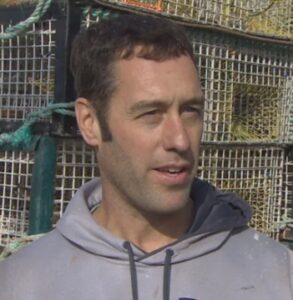 Lobster fishing inside Halifax harbour will be sharply restricted when the season opens next week as federal authorities move to enforce existing prohibitions. The Department of Fisheries and Oceans will not allow traps to be set within 300 metres of any wharf, pier or boat structure inside the harbour. The restriction was included in DFO lobster fishing licence conditions for the first time this year at the request of the Halifax Port Authority, which has the same rule on the books. That’s bad news for Craig Hartlen, a lobster fisherman based in Eastern Passage, a small port on the outer edge of the harbour. >>click to read<< 08:11
Lobster fishing inside Halifax harbour will be sharply restricted when the season opens next week as federal authorities move to enforce existing prohibitions. The Department of Fisheries and Oceans will not allow traps to be set within 300 metres of any wharf, pier or boat structure inside the harbour. The restriction was included in DFO lobster fishing licence conditions for the first time this year at the request of the Halifax Port Authority, which has the same rule on the books. That’s bad news for Craig Hartlen, a lobster fisherman based in Eastern Passage, a small port on the outer edge of the harbour. >>click to read<< 08:11
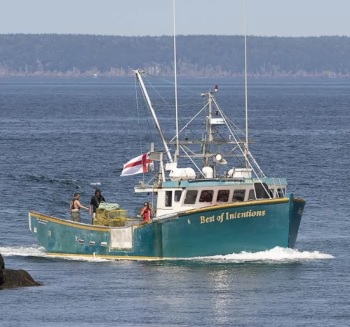
More than 50 Indigenous fish harvesters in the Maritimes charged or on trial
Three years after a First Nation started a self-regulated lobster fishery that sparked protests and violence in Nova Scotia, federal prosecutors are pressing ahead with charges against dozens of Indigenous fishers, some of whom are planning constitutional challenges. On Sept. 17, 2020, the Sipekne’katik First Nation issued five lobster licences to its members, saying they could trap and sell their catch outside the federally regulated season. The bold move came exactly 21 years after the Supreme Court of Canada affirmed the treaty right of Indigenous groups in Eastern Canada to hunt and fish for a moderate livelihood, but interpretations of that landmark ruling remain in dispute. >>click to read<< 09:25
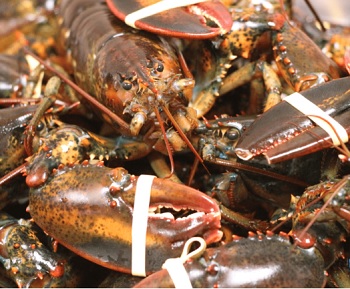
Observer companies dumped from monitoring of N.S. lobster fishery
This season, DFO will rely solely on an inshore industry association to assess what other species are being accidentally captured — what’s known as bycatch — in the lobster fishery from Halifax through the Bay of Fundy. Observer companies Javitech Atlantic in Dartmouth and Halifax’s Atlantic Catch Data have been part of the bycatch monitoring program since it was launched in 2018 to assess and demonstrate sustainability in the fishery worth half a billion dollars. Both companies are out for now. In recent years, they have not delivered anywhere near the sampling provided by the Yarmouth-based Southwest Lobster Science Society, which was created by five fishing associations to provide bycatch monitoring. >>click to read<< 08:30
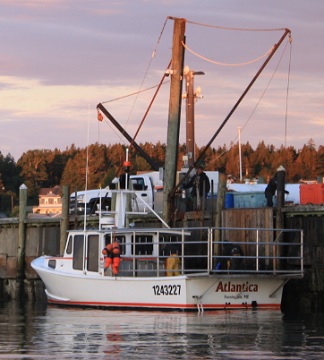
Maine wants to transform how the US manages the lobster fishery.
Patrick Keliher, Maine’s Department of Marine Resources commissioner, has argued that the fishery needs more “tools in the toolbox.” Now, with the most time he’s had in recent memory to sit down and craft new measures, he is hoping that the dawn of “dynamic management” in Maine is here. What is dynamic management? In theory, it’s a simple strategy to keep fishermen fishing, while also making way for whales. The Gulf of Maine would be monitored, with listening devices in the water and planes in the sky, for right whales. If signs of right whales are detected, fishermen would have to clear their traps out of the area. Dynamic management has been pitched by Maine before, and a version of it is being used in parts of the Canadian snow crab fishery. >click to read< 14:35
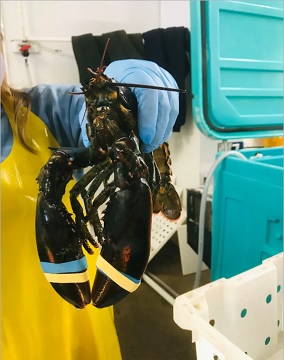
How do you show a lobster some love? A Cape Breton researcher has plenty of ideas
Michelle Theriault, a marine biologist at Université Sainte-Anne, tells her students to heap loving care on lobsters destined to markets in Auckland and Athabasca – and everywhere in between. So, how do you dote on lobsters? I dropped in on one of Theriault’s Zoom classes for lobster exporters to get some answers to that question. And while she was narrow-casting her class from the University’s Marine Research Centre at Petit-de-Grat, Cape Breton, lobster fishers were headed to sea to dump their traps on the opening day of the winter season south of Halifax. >click to read< 16:22
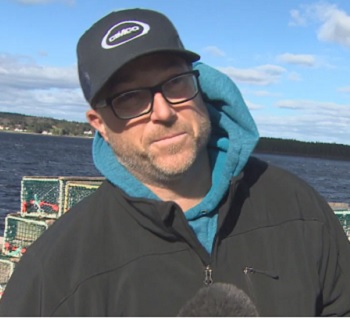
Nova Scotia lobster fishery braces for a downturn as inflation hits
Fishermen are seeing the downside of a cyclical industry at a time when inflation has sent their input costs skyrocketing. Geordy Bennett, a lobster boat captain in Riverport on Nova Scotia’s south shore, said he just spent $2,900 to fill his boat, Ava Brianne, with diesel at $2.03 per litre. “And it will probably be more next time,” Bennett said. Interest rates and the cost of bait and traps are also up. “It’s phenomenal. It’s doubled and we haven’t left the wharf,” Bennett said on a blustery day preparing traps for the upcoming season. >click to read< 18:10
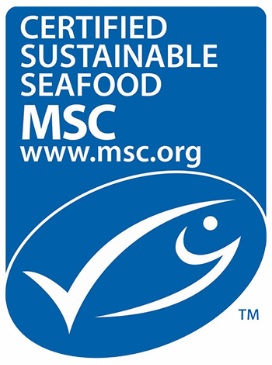
Enviros challenge Maine lobster fishery’s sustainability certification
The Natural Resources Defense Council and other conservation groups are challenging a seafood watchdog’s recertification of the Gulf of Maine lobster fishery as a sustainable resource. The Gulf of Maine’s lobster fishery first received the Maine Stewardship Council’s sustainability certification in 2013, and since then participating lobster businesses have been able to display the council’s blue fish checkmark recognized by eco-minded consumers. Virginia Olsen of the Maine Lobstering Union calls the resource defense council’s effort unfortunate. “Maine fishermen have stepped up to implement whale rules time and time again,”>click to read< 15:21
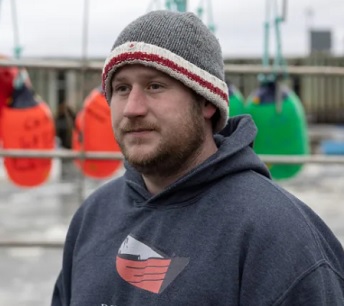
Atlantic Canada seafood sectors surged in 2021
In Riverport on Nova Scotia’s south shore, lobster fisherman Jason Conrad remembers when the pandemic hit in the spring of 2020 and the price of lobster plummeted to $4 a pound — below what it cost him to catch a lobster. Last month, Conrad was getting over $14 a pound — a sign of industry recovery that began at the end of 2020. “It rebounded way faster than I thought it would,” he said. Snow crab increases huge, A Banner year for lobster, More money for repairs, new boats >click to read< 10:25
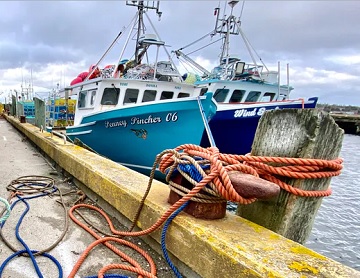
No Go: High winds again delay start of lobster fishery in southwestern NS
High winds have once again forced a delay in the opening of the commercial lobster fishery in southwestern Nova Scotia and along the province’s south shore in both LFAs 33 and 34. The season will not open on Nov. 29, the traditional ‘last Monday of November’ opening day. Due to the forecast, things are also a no-go for Tuesday, Nov. 30. Industry conference calls in the fishing districts were held with port reps and DFO on Sunday morning to discuss the marine forecast, which called for high winds and has a gale warning in effect. The wind was forecasted to increase to 35 knots southeast on Monday, Nov. 29, with seas building to three to four metres by the afternoon. >click to read< 17:32

A year ago violence erupted in the lobster fishery, “moderate livelihood” fishery status unresolved
One year ago, confrontation and violence upended the normally business-like commercial lobster season in St. Mary’s Bay and Lobster Fishing Area 35 in southwest Nova Scotia. Tensions between Indigenous and non-Indigenous fishermen in the bay had erupted in several dangerous boat-ramming incidents.,, But a full year later, as the wheels of justice turn ever so slowly, none of those charged have entered a plea. Before we examine how that happened, it’s worth noting some updates in the troubled fishery. >click to read< 10:07
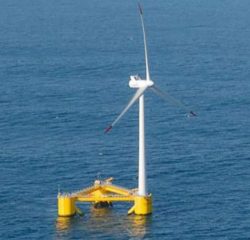
Maine: Local legislators sponsor bills in support of commercial fisheries
The 130th Maine Legislature has released a list of bills proposed in the House and Senate, and local representatives are focused on the commercial fishing industry, The lobster fishery, in particular, is facing competition from offshore wind energy development and conservation measures, both which affect lobstermen and their livelihood. Representative William “Billy Bob” Faulkingham, An Act to Prohibit Offshore Wind Energy Development. Rep. Genevieve McDonald is sponsoring three fishing-related bills. Rep. Robert Alley Sr., has proposed An Act to Support Maine’s Sustainable Lobster Fishery and An Act to Support the Sustainability of Maine’s Lobster Markets. >click to read< 19: 33
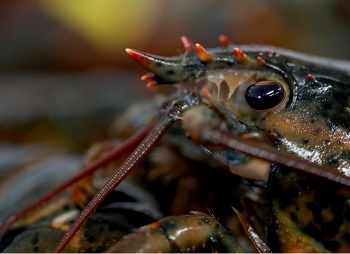
Evolution of the lobster fishery over 78 years: 92-year-old lobster fisherman looks back
Back in the day when Garnet Snow fished for a living to provide for his wife and five children, he fished alone. He paid 25 cents for a seasonal lobster license to a Nova Scotia fisheries officer at the time. Snow started fishing full time in a 25-foot boat called Olive Oil, with his father Earl Snow, when he left school in Grade 8 at age 14. Snow was born in 1929 on Snow’s Island, on the Eastern Shore about halfway between Ecum Secum and Sheet Harbour, and now at 92, he looks back at the local fishery of the 1950s and the next several decades. >click to read< 10:19
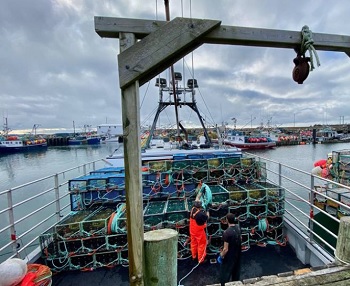
Dec. 3, 09:00 start confirmed for LFA 34 lobster fishery
After days of delay because of the weather, the LFA 34 commercial fishery off southwestern N.S. will get underway Thursday, Dec. 3. It’ll be a later start with boats leaving the wharves at 9 a.m. as opposed to the traditional 6 a.m. start. It was decided to take advantage of daylight for the season start. The season opener was confirmed during a Wednesday morning industry conference call with other stakeholders. >click to read< 14:24
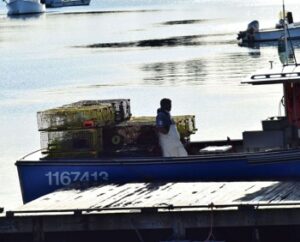
Lobster stock levels remain high in Gulf of Maine, but there is cause for concern
The “now” looks solid for local commercial lobster fishery, based on findings reported in the 2020 Atlantic States Marine Fisheries Commission Lobster Benchmark Stock Assessment, which reported the stock at “record high abundance levels.” The good news continued,, The news for southern New England, including southern Maine, remained poor, with a depleted fishery and no signs of resurgence. The research was conducted by several organizations, including the Department of Marine Resources, Gulf of Maine Research Institute and the University of Maine’s Sea Grant program and Lobster Institute. The assessment, released in October, was based on surveys conducted from 2016 through 2018. However, once the research turns to lobster settlements the future does not look as bright. >click to read< 18:29

Systemic racism: another view
A recent column by Dr. Jim Guy on the lobster fishery question (“Systemic racism plagues Nova Scotia’s fishery,”) is most thought provoking. Dr. Guy posits that at the core of this dispute lies systemic racism, luridly comparing the situation to the segregationist Jim Crow south of America’s past. I do not agree with his position, instead seeing the dispute as one between fishers contesting jurisdictional licensing and conservation issues and not one of race, much less one of systemic racism, where the very administrative arms of society are imposing racially biased polices against Indigenous fishers. By David Delaney, >click to read< 12:35
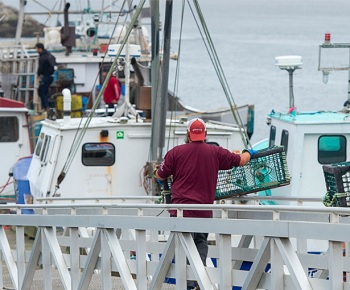
Moving Forward on Lobster Fishery Means Addressing Access and Conservation
In 1999, the Supreme Court’s Marshall decision recognized that Mi’kmaq First Nations have had, and continue to have, a treaty right to catch and sell fish. As a result, First Nations have been increasing their presence in the fishery over the past 20 years. Now, more than 20 years later, this remains a stumbling block, as new “moderate livelihood” Indigenous fisheries are emerging. Further, these new fisheries have another crucial angle – First Nations are developing their own fishery management and conservation plans, making this about Indigenous self-governance as well as about catching lobsters. Indeed, what we’re seeing unfolding off the coast of Nova Scotia touches on two themes that come up worldwide: who sets the rules for conservation of resources, and who has access to harvesting that resource. >click to read< 08:33
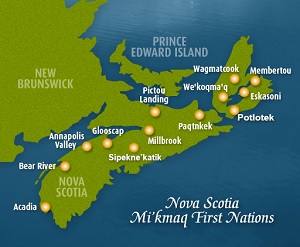
Lobster Fishery at a crossroads
According to the book Truth and Conviction: Donald Marshall Jr. and the Mi’kmaq Quest for Justice, when Marshall was asked to produce his fishing licence he replied, “I don’t need a licence. I have the 1752 Treaty.” Using the lifetime pension he received as compensation from the wrongful conviction, Marshall decided to fight for his ancestral Treaty rights to hunt and fish, and eventually, after an expensive and lengthy court battle, in 1999 the Supreme Court of Canada ruled in his favour. Marshall was acquitted on all the fishing charges, and the landmark ruling affirmed that the 1760 and 1761 Peace and Friendship Treaties with the British and Section 35 of the 1982 Constitution Act gave the Mi’kmaq, Maliseet, and Peskotomuhkati people, a total of 34 First Nations in the Maritime provinces and the Gaspé region of Quebec, the right to hunt, fish and gather in pursuit of a “moderate livelihood” from the resources of the land and waters. A subsequent Supreme Court clarification, known as Marshall II, stated that conservation-based regulations would still apply. >click to read< 08:59
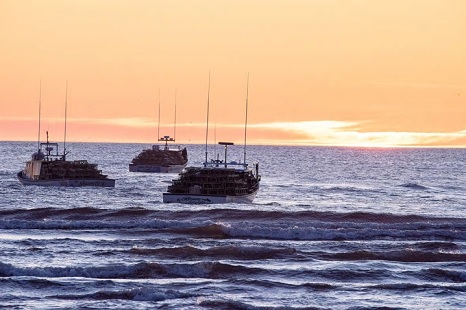
UPDATED: It’s setting day for P.E.I.’s lobster fishery after 2-week delay
Lobster fishermen are setting their traps from ports around Prince Edward Island this morning, after a two-week delay due to the COVID-19 pandemic. The spring fishery on P.E.I.’s North Shore and the eastern Northumberland Strait was delayed partly because some lobster processing plants in the region were not ready,, It will be a season like no other for fishermen: they’ll be asked questions about their health daily, are not allowed to share equipment and must wear gloves at all times. They’re required to thoroughly clean frequently-touched surfaces on board vessels, and to maintain a physical distance of two metres when possible. added photos, >click to read< 07:31
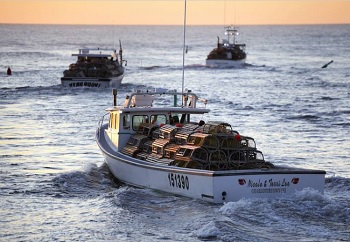 IN PHOTOS: P.E.I. lobster fishers head out on setting day following delay – P.E.I. fishers hit the water early this morning to set their lobster traps. The season finally opened on May 15 following a two-week delay due to the coronavirus (COVID-19 strain) pandemic. >click to view< 13:22
IN PHOTOS: P.E.I. lobster fishers head out on setting day following delay – P.E.I. fishers hit the water early this morning to set their lobster traps. The season finally opened on May 15 following a two-week delay due to the coronavirus (COVID-19 strain) pandemic. >click to view< 13:22
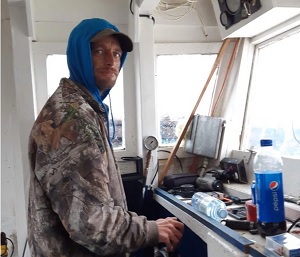
Coronavirus: ‘Like a funeral’: Fisherman laments tanking prices in once-lucrative lobster fishery
The Department of Fisheries and Oceans has set opening dates for the lobster fishery from May 1 to May 6, depending on the area of the province where harvesters live. According DFO, there are 2249 lobster license holders but not all are active. Preston Grandy, 40, has been catching lobsters since he was just a boy. On Saturday, he’ll leave his wharf in Garnish on the Burin Peninsula and set his pots, a task he’d normally take on with pure enthusiasm. “Usually setting day for me for lobsters, it’s just like Christmas morning for a kid. But this year it’s almost like a funeral. I’ve got no desire to even go down to the wharf,” >click to read< 08:58

Federal Judge Finds Lobster Fishery Threatens Endangered Whales, Orders NMFS To Comply
U.S. District Judge James Boasberg of the District of Columbia said in a 20-page order Thursday a 2014 finding by the National Marine Fisheries Service the American lobster fishery would not jeopardize the North Atlantic right whale population – of which there are 400 left in the world – violated the Endangered Species Act, granting summary judgment in favor of several conservation groups. The 2014 Biological Opinion by the National Marine Fisheries Service failed to include an “incidental take statement,” rendering the opinion illegal under the Endangered Species Act, Boasberg found. >click to read< 07:49
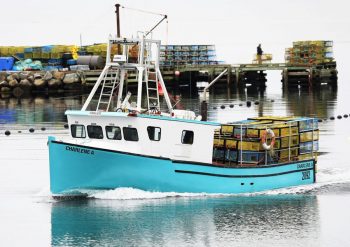
Coronavirus: Reverberations from COVID-19 reach Canada’s East Coast and its lobster fishery
Lobster fishermen, like Fralick, are facing a crunch. In the last month, the coronavirus epidemic in China has precipitated a drop in lobster prices. “It dropped from $10.50 all the way down to $6, and now it’s back up to $7,” says Fralick. “That takes all the profit out of it.” Quarantines and lack of restaurant traffic has slowed lobster demand from China. Customer orders have dried up. As a result, fewer cargo planes are making the trip. >click to read< 07:54
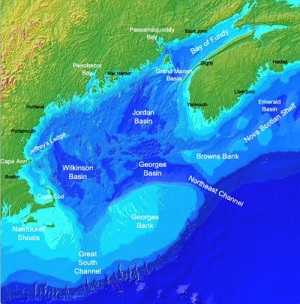
The Voice Of The Lobster
Over in the Tweetiverse, someone was all boo-hoo about the eeevil effects of “climate change” that he claimed had “already occurred”. He referenced a publication from a once-noble organization that sadly has drunk the “CLIMATE EMERGENCY” koolaid, National Geographic. So I read it, and the only thing in that, other than what “might” and “probably” and “could” occur at some uncertain time in the future, was a mention of “oceanic heatwaves” in Maine and surroundings, viz: “The U.S. is already grappling with climate change’s heavy costs, like when a powerful ocean heatwave struck the Northeast and devastated the region’s lobster fishery.” As a long-time commercial fisherman, that piqued my interest. So I looked to see what I could find out. >click to read< 05:56

Northern Pulp: Nova Scotia rejects pulp mill’s plea for more time, offers $50M for workers
Nova Scotia Premier Stephen McNeil has rejected a pulp mill’s plea for a deadline extension that would have allowed it to continue dumping wastewater near a First Nation after Jan. 31.,,An emotional McNeil told a news conference that the mill has been given ample time to clean up its act and stop dumping effluent into the Boat Harbour lagoon near the Pictou Landing First Nation. >click to read< 13:33
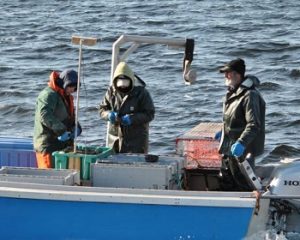
Safe opening to lobster fishery in southwest N.S. but harsh weather followed during week one
The weather was wild and woolly for the first week of the lobster season in southwestern Nova Scotia. After a one-day weather delay to the start of the season, fishermen headed to sea to dump their traps on Nov. 26 in good conditions, followed by a slicker for the first hauling day. It was all down hill after that, with gale force winds prevailing for the rest of the week, keeping much of the fleet ashore. “They got out the one day and that was it,” >click to read< 17:39
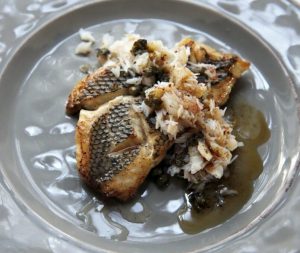
How eating sea bass and crab can help Maine lobstermen
A group of Rhode Island fishermen who witnessed southern New England’s near-shore lobster fishery evaporate and its offshore fishery diminish dramatically in their time on the water came to last month’s Maine Fishermen’s Forum in Rockland to give lobstermen here a bit of seasoned advice: Embrace ecosystem change while you’re in a good position to do so.,,, “As the poster child for a fisherman who has had to adapt to sea change, I can tell you that black sea bass represents a huge opportunity,” said Norbert Stamps, a Barrington, Rhode Island-based offshore lobster fisherman. Even if fishing for black sea bass is only done on a small scale, Stamps said, it can make an impact. >click to read<09:58
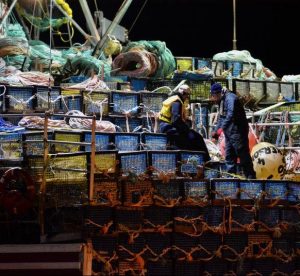
Following weather delay lobster fishery will get underway on Saturday, Dec. 1
The lobster fishery in southwestern Nova Scotia and along the province’s south shore will open on Saturday. Under ideal weather conditions the season would have begun on Monday, Nov. 26, but winds this week pushed the start of the season back to Dec. 1. In LFA 34 (which takes in all of Yarmouth County and parts of Shelburne and Digby counties) boats will leave their wharfs at 6 a.m. on Saturday. In LFA 33, which extends from Shelburne County to Halifax County, boats will depart at 7 a.m. >click to read<12:40






